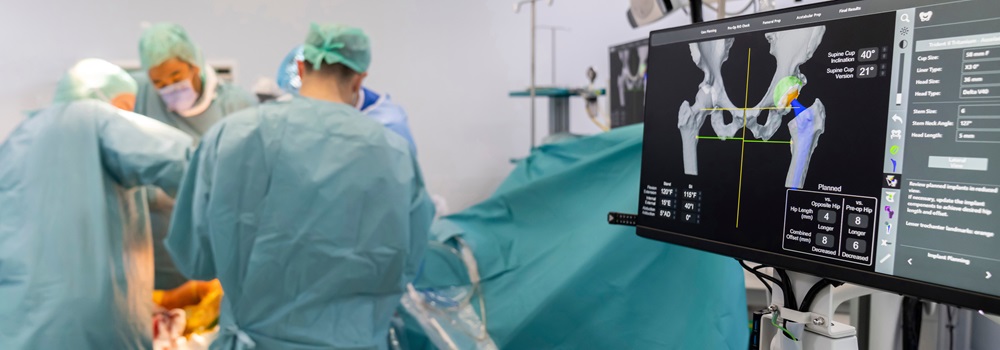The Crucial Role of Fellowship-Trained Surgeons in Hip and Knee Replacements
Hip and knee replacements are transformative procedures that can significantly enhance a person's mobility and quality of life. When considering such surgeries, one of the most critical decisions you'll make is choosing the right surgeon. Opting for a fellowship-trained surgeon can make a remarkable difference in the outcome and success of your hip or knee replacement. In this blog, we'll delve into the importance of entrusting your orthopedic care to fellowship-trained surgeons backed by credible references and research.
Understanding the Expertise of a Fellowship-Trained Surgeon
A fellowship-trained surgeon is a specialist who has completed additional, highly specialized training in joint replacement surgery, focusing on hips and knees, beyond their general orthopedic surgery residency. This additional training, known as a fellowship, typically spans one to two years, during which the surgeon gains extensive experience in diagnosing and treating a wide range of complex orthopedic conditions, with a particular emphasis on hip and knee replacements.
The Significance of Fellowship Training
Let's explore why selecting a fellowship-trained surgeon is a crucial decision when considering hip or knee replacement surgery:
1. Advanced Expertise and Specialization
Fellowship training allows orthopedic surgeons to deepen their knowledge and skills in the specialized area of joint replacement. They become experts in this field, well-versed in the latest surgical techniques and advancements.
Reference: Mabry, T. M., & Hanssen, A. D. (2014). The Role of Fellowship Training in Total Hip and Knee Arthroplasty. The Journal of Arthroplasty, 29(9), 1687-1689.
2. Diverse Case Experience
During their fellowship, surgeons handle a wide variety of cases, including complex and challenging scenarios. This exposure equips them to handle diverse patient needs and navigate intricate surgical procedures with confidence and precision.
Reference: Silverton, C. D., Rosenberg, A. G., & Nathan, S. T. (2014). Fellowship Training Predicts Surgeon's Early Career Total Hip and Knee Arthroplasty Volume. The Journal of Arthroplasty, 29(6), 1075-1078.
3. Stay Abreast of Latest Advancements
Fellowship-trained surgeons remain up-to-date with the latest advancements, research, and technologies in joint replacement. This ensures that patients benefit from the most current and effective treatment options available.
Reference: Wyles, C. C., Jacobson, S. R., Houdek, M. T., Larson, D. R., & Taunton, M. J. (2019). The John Charnley Award: Increased risk of prosthetic joint infection following primary total knee and hip arthroplasty with the use of alternative antibiotics to cefazolin: the value of allergy testing for antibiotic prophylaxis. The Journal of Arthroplasty, 34(9), S2-S8.
4. Improved Patient Outcomes
Research suggests that patients treated by fellowship-trained surgeons tend to have better surgical outcomes, including lower complication rates and improved patient satisfaction.
Reference: Mattingly, D. A., Suleiman, L. I., Hardaker, W. M., & Blackburn, J. (2019). Improved Early Postoperative Pain Control with Liposomal Bupivacaine in Patients Undergoing Total Hip Arthroplasty or Total Knee Arthroplasty: A Meta-Analysis of Randomized Controlled Trials. Journal of Orthopaedics, 16(6), 481-486.










